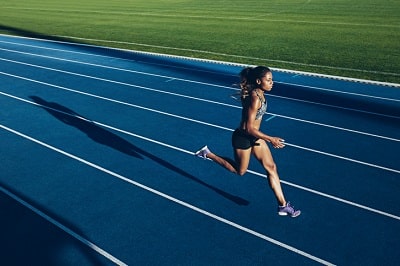The Benefits of HGH for Athletes
 The world of competitive sports is extremely demanding. Athletes must be stronger, faster, and more agile than their competitors. Reports of steroid abuse are rampant in both sports and bodybuilding even though these substances are illegal. You may also hear about the benefit of HGH for athletes to help improve muscle mass, strength, and speed.
The world of competitive sports is extremely demanding. Athletes must be stronger, faster, and more agile than their competitors. Reports of steroid abuse are rampant in both sports and bodybuilding even though these substances are illegal. You may also hear about the benefit of HGH for athletes to help improve muscle mass, strength, and speed.
Are these reports true or just locker room talk?
It is true that HGH has anabolic-like benefits for the body. Human growth hormone increases protein synthesis which is crucial for muscle mass all while promoting fat-burning effects. Since HGH is the stimulator of cell regeneration (along with IGF-1), it provides a continual supply of new muscle cells.
In addition to aiding muscle mass, HGH also imparts strengthening and healing effects on ligaments, tendons, and cartilage. Some athletes claim that HGH therapy helped them heal quicker from sports-related injuries. Returning sooner to practice and competition is among the highly-anticipated benefits of growth hormone for athletes.
However, HGH use continues to remain illegal in most competitive sports. Why is that? Governing panels have stated that an athlete that uses medications such as HGH and steroids could have an unfair advantage over those who choose not to use enhancing agents.
How Can Athletes Use HGH Legally?
At this time, most sports, as well as the Olympics, ban the use of human growth hormones. Some studies have shown the benefits of HGH injections for athletes to be modest – providing only a slight boost in muscle mass or speed. No research to date identifies an increase in strength associated solely with HGH therapy. Any boost in strength typically comes from steroid use.
A potentially legal use down the road for HGH is in healing from injury and surgery. Mark Cuban, the owner of the Dallas Mavericks, funded a study on the benefit of HGH for athletes who suffer an ACL injury. The results of this study should be out soon.
The hope is that HGH can reduce the muscle loss due to downtime before and after surgery. If HGH can decrease muscle decline and speed the healing process, the athlete could return to practice and competition sooner rather than later.
Studies on HGH Use for Athletes
 In one study on athletes between the ages of 18 and 40, the male and female participants received either HGH or salt water injections for two months. Some of the men in the study of the benefits of athletes using HGH also received testosterone.
In one study on athletes between the ages of 18 and 40, the male and female participants received either HGH or salt water injections for two months. Some of the men in the study of the benefits of athletes using HGH also received testosterone.
Researchers tested the participants in weightlifting, bicycling, and jumping. The benefits of HGH for athletes under these circumstances showed only an improvement in sprint capacity. No changes in power, endurance, or strength were noted.
HGH has tremendous benefits for those individuals suffering from a growth hormone deficiency. When the body currently produces enough HGH for its needs, increasing the amount through supplemental use can lead to severe side effects. You also put the body at risk of shutting down natural hormone production when blood levels become too high. The benefit of HGH for athletes is not worth the potential risk to one’s health.
The bottom line: do not use HGH unless prescribed by a doctor to treat blood-analyzed hormone deficiency. Contact our hormone clinic to discuss testing and treatment options for HGH deficiency during a free consultation.

